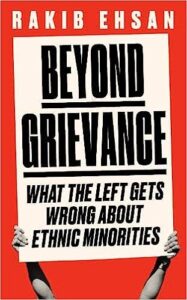Diversity – it is one of the most commonly used terms in the modern-day political lexicon. For some, it is at the heart of their precious EDI ‘holy trinity’ which also includes equality and inclusion. For others, the diversification of British society is the root of all its ills.
It is no secret that I believe the UK has established itself as one of the most successful examples of a diverse democracy in the modern world – certainly more so when compared to the likes of France, Germany, and the United States. There is no other place I would rather live as a member of an ethnic, racial, and religious minority.
Where I do take issue with many on the so-called ‘liberal-Left’ is not only their largely uncritical view of diversity, but also their reluctance to acknowledge that Britain was an industrious, innovative, and interesting place well before the inward streams of post-WWII, non-white migration.
Take, for example, Leicester. In the past, it was labeled as a formerly tired and nondescript city that was transformed into a paragon of British multiculturalism as a result of immigration-induced diversity.
This is of course nonsense. Being the end of one arm of the London-origin Grand Union Canal (the other being Birmingham), Leicester was such a hotbed of industrial activity that it became the second-richest city in Europe just a few years before WWII.
In the post-WWII era, Leicester was dubiously referred as the gold-standard example of social cohesion in Britain. That view was thoroughly discredited after the large-scale disorder witnessed last year in eastern parts of the city such as Belgrave.
One can take pride in our multi-racial democracy without washing away the achievements of the racially-homogeneous Britain of the past and overly romanticising current-day diversity.
The quicker much of the liberal-Left recognises that diversity is not an unadulterated good, the sooner we can work towards building more cohesive and resilient communities in Britain.
